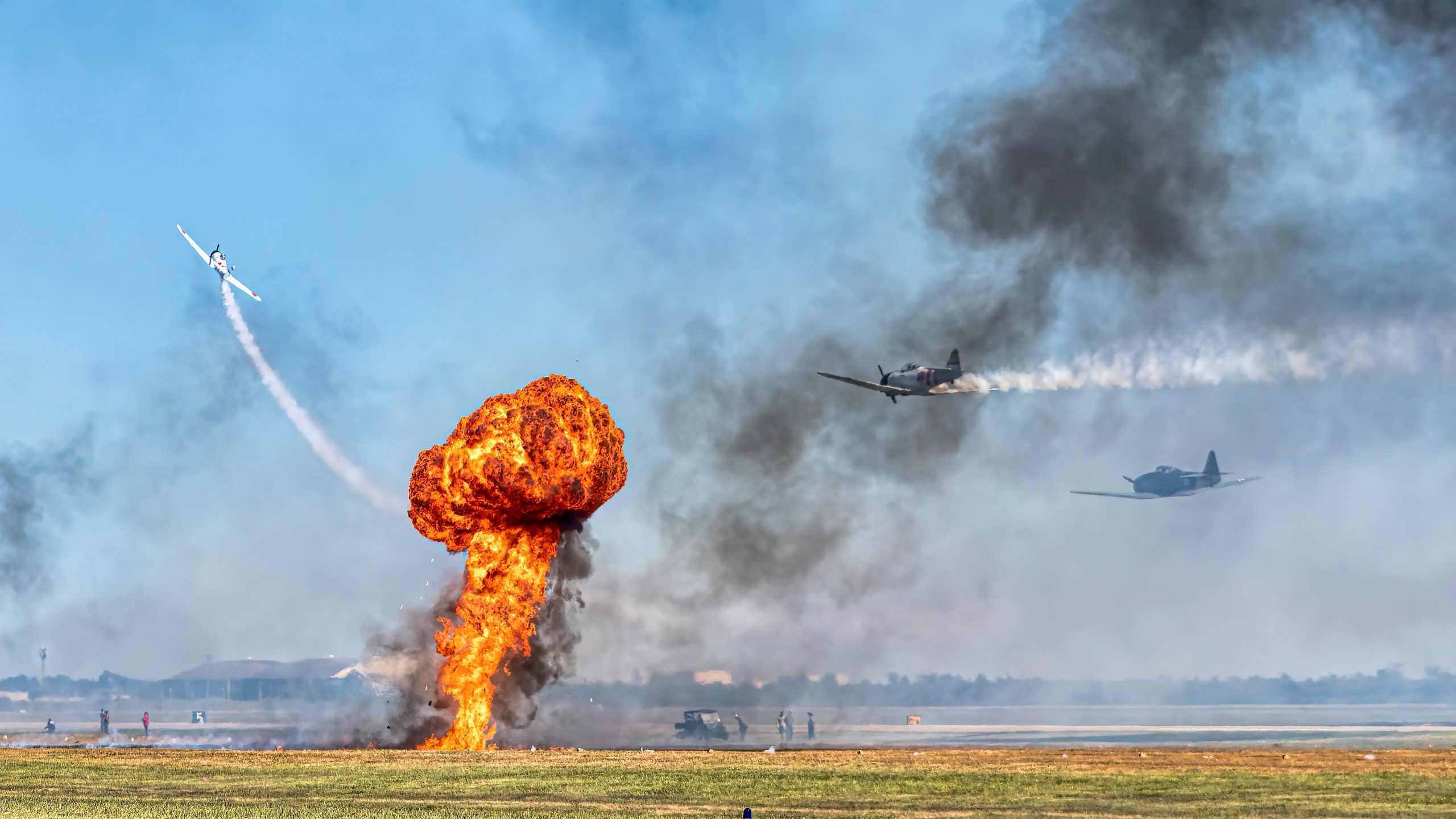As War Leads to More Orders, Weapons Makers Should Embrace Human Rights

* Originally published on Forum on the Arms Trade’s “Looking Ahead Blog” found here: https://www.forumarmstrade.org/blog/as-war-leads-to-more-orders-weapons-makers-should-embrace-human-rights
by Aaron A. Acosta and Jeff Abramson
27 April 2023
In the coming month, shareholders at major U.S. defense manufacturers will again recommend that the companies consider human rights in their business decisions. This time, the companies should agree.
That defense companies face reputational risks when their weapons are used to bomb school buses or in other ways kill civilians is generally known. Nevertheless, arms manufacturers typically resist calls for shouldering the blame when their products are misused by arguing that the government provides licenses for their sales – and therefore takes that responsibility off industry’s shoulders. But an excellent brief last year by the American Bar Association’s Center for Human Rights lays out a range of risks arms manufacturers face that cannot simply be waved away by a government license. These include those reputational factors, as well financial, governance, regulatory and legal risks. Lockheed, General Dynamics, and Raytheon were reminded just last month of such challenges when a group of Yemeni nationals filed a lawsuit against them in Washington D.C. for “aiding and abetting war crimes and extrajudicial killings” by supplying arms to Saudi-led coalition’s war in Yemen. And a new database launched last week draws attention to the growing legal challenges to governments’ export licensing decisions, further highlighting that defense companies cannot, nor should not, rely solely on government determinations.
At forthcoming Lockheed Martin and General Dynamics annual general meetings, investors will sponsor resolutions calling for the companies to conduct and publish a human rights impact assessment. At Northrop Grumman, the call will be for an examination of whether the company’s political activities (direct and indirect lobbying, campaign contributions, etc.) align with those policies. In short, the arms companies – the world’s 1st, 4th and 5th largest – are being asked to begin more fully engaging in human rights due diligence.
Rather than resisting shareholder initiatives, defense manufacturers this year should embrace the push for human rights. With ongoing customer relations and follow-on services to weapons recipients, defense companies often have information on what’s happening with weapons stocks and are able to encourage and provide know-how on best practices.
The ABA guidance mentioned earlier details practical advice to help companies manage actual and potential human rights impacts linked to their business activities. This includes evaluating the risks that potential clients may violate human rights with weapons and services they receive, proactively putting in place preventive and mitigation measures that establish good practices for companies and clients, monitoring how weapons are used, and then following up with investigation and remediation where necessary.
The Biden administration has also made clear that human rights matter in its arms trade decisions. The President’s new conventional arms transfer (CAT) policy, issued in February, places a stronger emphasis on human rights, stating the U.S. will not transfer arms when it assesses that it is “more likely than not” that they will be used to commit an array of human rights abuses. It also explicitly makes clear that as situations change, arms transfers may be cut off – a signal to industry that just getting to a contract is not enough.
At the same time, the policy made a commitment to arms manufacturing and the defense industrial base. And that industrial base will be busy. As the war in Ukraine continues, it is clear that U.S. defense companies will have many years of orders to not only replenish the stock of U.S. weapons sent to Kyiv, but also those of partners who have done so.
Importantly, this makes now the best moment for U.S. companies to adopt and implement human rights due diligence policies. With such a substantial portion of future sales likely to go to European countries whose human rights practices and weapons-use policies tend to be more transparent, defense companies should be able to “battle-test” human rights due diligence with them.
The idea that American companies should pay attention to more than just the bottom line has, of course, been much more visible this year, as President Biden issued his first veto last month, thwarting those who argued that investors shouldn’t be able to take into account environmental, social, and governance considerations. While that may now have made “ESG” a household acronym for many Americans, ESG goals have been undergirded for more than a decade by the 2011 “UN Guiding Principles on Business and Human Rights,” known as the “UNGPs.”
Over the years, the U.S. government has continually and explicitly recognized the important role of the UNGPs. The first National Action Plan on Responsible Business Conduct (NAP), which was published in 2016, emphasized that responsible business conduct principles are encompassed in the UNGPs. Importantly, the 2016 NAP stated the U.S. government “encourages businesses to treat tools like the… UN Guiding Principles as a floor rather than a ceiling for implementing responsible business practices [RBC], and to recognize that implementing RBC should be a continuing process.” A revision to the NAP is currently underway that will recognize that UNGPs “have both domestic and international applicability.”
The extension of the UNGPs into arms and security issues has also grown. A key UN working group report last year explicitly looking at the arms sector similarly made the case for implementing the UNGPs and recommendations for how businesses could do so. And, late last month under U.S. leadership, more than 20 countries again endorsed them at the Summit for Democracy as part of a code of conduct aimed at preventing the proliferation of software and technologies that enable serious human rights abuses.
Despite the growing momentum around embedding the UNGPs in companies’ policies and practices, only one of the three major weapons companies that will soon face investor-led human rights initiatives explicitly mentions them. That’s Northrop Grumman, who does not take them as authoritative, but rather says they offer “a source of guidance on how governments, companies, and other parties can address their responsibilities.”
Last year, defense company leaders argued against shareholder proposals that highlighted human rights due diligence, but those that went to a vote at Lockheed and General Dynamics still garnered 20.2% and 25.2% shareholder support, respectively. While the Lockheed proposal asked the company to conduct a human rights impact assessment, the General Dynamics proposal asked for reporting on the company’s human rights due diligence process. This year, shareholder proposals filed at Lockheed (April 27) and General Dynamics (May 3) ask the companies to conduct human rights impact assessments, and the Northrop proposal asks the company to report on misalignment between its political activities and its human rights commitments.
The Northrop (May 17) proposal on misalignment, filed for the first time this year, highlights the high reputational risks companies face when their political activities are in conflict with their stated commitments. Northrop’s political activities suggest it actively lobbies, makes political contributions, and otherwise pushes for government sales of its defense products and services to customers linked to irremediable human rights impacts. Recently, major proxy advisors Vanguard and Glass Lewis pointed out the significant reputational risks of misalignment between a company’s political activities and its stated commitments and values – risks that affect a company’s bottom line.
It’s time for U.S. defense manufacturers to be proactively responsible partners in our national endeavors to promote human rights.
Aaron A. Acosta is a senior program associate at Investor Advocates for Social Justice, Jeff Abramson is a senior fellow at the Arms Control Association and director of the Forum on the Arms Trade
Inclusion on the Forum on the Arms Trade expert list and the publication of these posts does not indicate agreement with or endorsement of the opinions of others. The opinions expressed are the views of each post’s author(s).

